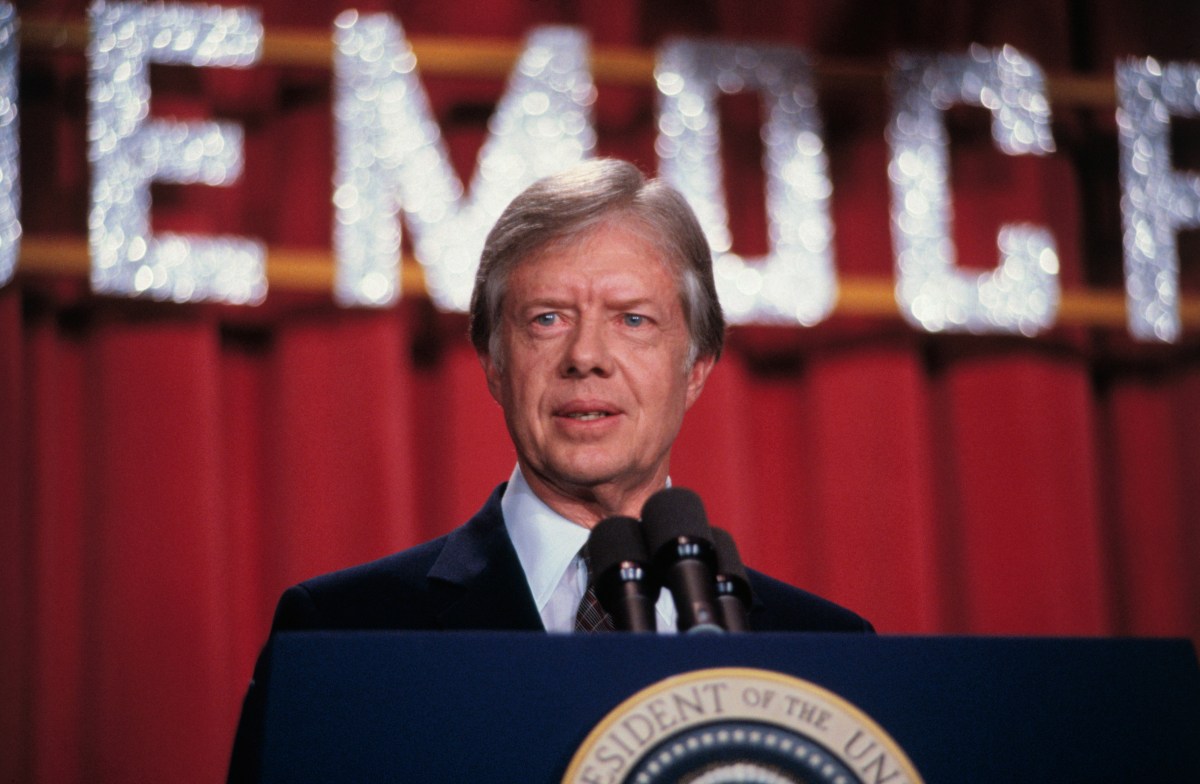LOUISVILLE, Ky. (AP) — Rand Paul was a political outsider more than a decade ago when the renegade Republican rode a conservative tea party wave right past the GOP establishment in Kentucky, bringing his libertarian-leaning brand to the U.S. Senate.
But as Paul seeks a third Senate term against financially overmatched Democrat Charles Booker in the November midterm election, the senator still relishes his willingness to stand alone as he promotes his vision of limited government and restraint in foreign policy.
“The easy way out is to vote yes,” Paul said in an interview during a recent Kentucky campaign stop at a fish fry in Garrard County, a rural GOP stronghold. “It’s a little more of a challenge to explain why we’re spending too much money.”
Paul’s unconventional approach is in many ways a new model of governing, one that has boosted his political profile by rejecting and even shutting down Washington’s normal workings. It’s a style that at times frustrates Senate colleagues on both sides of the aisle.
“I’ve never really seen things in terms of party,” Paul said. “I see things in terms of right and wrong.”
Despite 12 years in office, the senator doesn’t brag about bringing federal funding to Kentucky, which struggles with pockets of deep poverty. In fact, he opposed some policies and domestic spending for philosophical reasons, even when that could impact Kentuckians directly.
His critics point to a career they say is long on grandstanding and light on accomplishments.
“Rand Paul is a contrarian and nothing is going to change that,” said Booker, the progressive Democrat seeking the upset in a state that hasn’t elected a Democrat to the Senate since 1992.
Booker said Paul has a penchant for political and legislative “chaos” motivated by his desire for the limelight, particularly in conservative media outlets. Such appearances raise the senator’s profile, and with it the funding for his campaigns.
One of Paul’s priorities — reducing federal spending and debt — shows the limits of his singular style.
Paul has consistently presented spending blueprints he touts as road maps to a balanced federal budget. However, his attempts failed by wide margins, opposed by Republicans and Democrats alike.
The Kentuckian is unfazed, seeking his next opportunity to speak out against what he sees as excessive federal spending and an obstinate establishment. Paul issues yuletide “Festivus” reports to point out examples of wasteful government spending.
“If you ask people in Washington, their heads explode because they could never conceive of ever reducing spending,” Paul said in a Senate speech this year touting his latest balanced-budget plan.
Paul defied leaders of both parties this spring when he briefly delayed Senate approval of an additional $40 billion to help Ukraine and its allies withstand Russia’s invasion. Paul wanted language inserted that would have an inspector general scrutinize the new spending.
The standoff over military spending reflected his broader message that U.S. foreign aid should be drastically reduced. During a recent trip to eastern Kentucky, Paul said he heard a common theme from constituents: “Quit sending it to Ukraine and send it to Perry County, send it to Letcher County.”
Paul has voted against federal farm bills — vitally important for Kentucky’s agriculture sector — balking at the cost and railing against its food aid sections. He was one of two senators to vote against passage of legislation ensuring a victims’ compensation fund related to the Sept. 11 attacks never runs out of money. Paul questioned its 70-year time frame and said any new spending should be offset by corresponding cuts.
“While I support our heroic first responders, I can’t in good conscience vote for legislation which to my dismay remains unfunded,” Paul explained.
He has a history of holding up or threatening to delay bills on the brink of passage, including measures dealing with sanctioning Russia, averting a federal shutdown, the defense budget and government surveillance. In 2018, Paul held up votes on a bipartisan, budget-busting spending deal, forcing a brief federal government shutdown.
“I didn’t come up here to be part of somebody’s club. I didn’t come up here to be liked,” Paul said then.
Paul’s anti-spending zealotry builds on the libertarian brand of politics embraced by his father, former longtime U.S. Rep. Ron Paul of Texas. Supporters and critics agree Paul has forged a distinct path but view his approach differently.
“He don’t back down from nobody,” said Joe Oakes, an 81-year-old Paul supporter at the fish fry. “That’s about the best thing you can say about him, that he stands for what’s right and he sticks by it.”
When sizing up Paul’s record, Kentucky political commentator Al Cross said recently: “He’s been a senator largely about Rand Paul, not about Kentucky interests, which is completely different from almost any other United States senator this state has ever had.”
Paul’s reputation as a disrupter has at times complicated things for his Kentucky colleague — Senate Republican leader Mitch McConnell, who supported another GOP candidate during Paul’s first Senate run.
Paul won reelection in 2016 by a wide margin, and Kentucky’s senators have maintained a working relationship to advance conservative causes. Their uneasy alliance frayed this year when Paul blocked plans for a federal judicial nomination pushed by McConnell for their home state.
The Kentucky senators reflect “different brands of Republicanism,” charting their own paths and worldviews, said Scott Jennings, a Kentucky-based political commentator close to McConnell and a former adviser to George W. Bush.
“I think Kentuckians value his contrarian voice because he’s often ahead of the curve on things,” Jennings said of Paul. “Rand covers a more visceral messaging end that taps into the emotions of a majority of Kentucky’s voters.”
Paul’s occasional successes in getting legislation passed often came when he found common ground with Democrats on key priorities, including privacy and criminal justice issues.
Paul, a former presidential candidate whose message was drowned out by Donald Trump in 2016, found allies on the left as he railed against the federal government’s surveillance programs. More recently, Paul teamed with Democratic Sen. Cory Booker on Senate-passed legislation to end animal testing mandates for federal drug approvals.
And whether it leads to legislative successes or not, Paul’s ideology has gained traction in Kentucky, where supporters credited the senator for taking principled stands.
“I like him because he’s got a backbone,” 71-year-old Vernon Willard said at the fish fry.
Mascaro reported from Washington.
Follow AP’s coverage of the elections at: https://apnews.com/hub/2022-midterm-elections
Check out https://apnews.com/hub/explaining-the-elections to learn more about the issues and factors at play in the 2022 midterm elections.


















